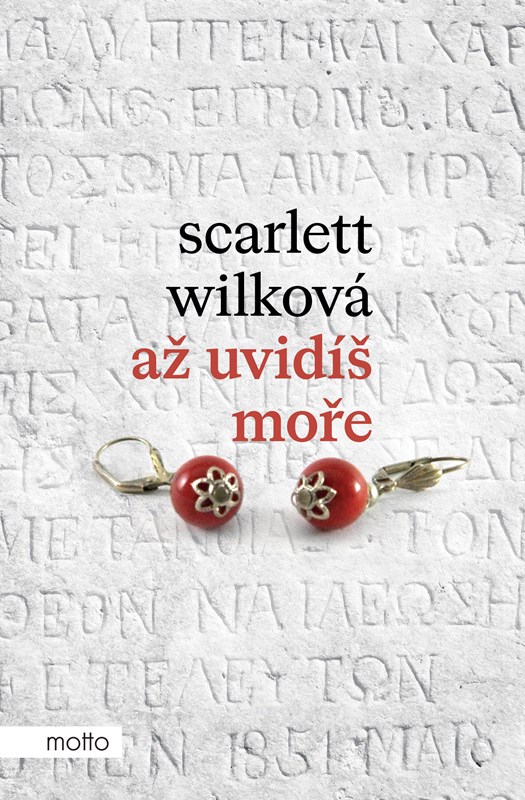A foreigner in one’s own country.
The year is 1948. Ten-year-old Sortiria and Koula are transported by train to communist Czechoslovakia along with thousands of Greek child immigrants. There they find refuge in an orphanage. They don’t speak Czech, misspell their family names, have no news of their parents, and have no idea what their lives in their new home will be like.
Sortiria last saw her, Elpida, when she left her with her grandmother at their native village, while fleeing civil war to take refuge in the mountains with other women and children.
Eventually, Sortiria’s mom and dad, separately, flee to Czechoslovakia and reunite there. They assume she died along with her grandmother during the village bombing that had no survivors. They have no knowledge of the train.
During their almost five-year stay in the orphanage, Sortiria and Koula dream of marriage and a life beyond it’s walls. At boarding school, they learn to sew and produce fabrics. This, along with fashion, becomes Sortiria’s lifelong passion.
One day, Elpida recognizes her daughter Sortiria from a newspaper photo from a school performance. They reunite. Koula soon meets Sortiria and her family and becomes an integral part of their nucleolus.
Janis, Sortiria’s childhood friend, with whom she spent beautiful moments daydreaming and talking about the future while watching over a herd of sheep, immigrates to Czechoslovakia. He searchs for friends within the Greek community and finds Sortiria’s family, reuniting with her. Soon after, they marry. Moreover, Sortiria sees the marriage as an opportunity to break free from her family. Growing up in Czechoslovakia has made her quite different from her parents. Plus, she and her younger siblings all live cramped up in a small room.
Sortiria and Janis move to Ostrava, and their daughter Anna is born. Koula moves there too and becomes Janis’s lover. When Sortiria eventually finds out, it’s the last straw in her marriage full of strife.
Both Sortiria and Koula long for a return to their native Greece. Do they belong in Greece? Will Sortiria ever see the Greek sea? Sortiria’s endless search for her roots will have her return to their native Greece, where she will find perhaps more than she expected.
RELEVANT DATA: When You See the Sea is a deeply touching story, full of longing for a home, a yearning to get to know one’s own family history, and the search for roots. It emphasizes courage, the effort to change one’s fate. Greek food, stunning landscapes, the sea, the sun, and beautiful nature play significant roles, contrasting with the oppressive, grey atmosphere of Czechoslovakia under the rule of the totalitarian regime. The story juxtaposes different ways of life, highlighting the dichotomy between them.
This family saga, based on true events, could appeal to hundreds of thousands of Greeks and their descendants who emigrated and lived in many countries worldwide.
The book was nominated for the Award Czech Book of year 2022 and shortly after became a bestseller, receiving many great reviews.
Scarlett Wilková is an author and a journalist with over two decades of experience. She writes about social topics for the Magazine DNES, interviews, and collaborates with Post Bellum, a non-profit organization documenting and sharing stories from the 20th century. She has recorded several stories of Greek memoirists from the Postwar period for Post Bellum, which inspired her work on the book.
What the critics and readers have said:
“Excellent. I read it in one breath. Greek refugees are not talked about much in history, which is a real shame.” Goodreads
“This book is such a caress for the soul. A beautiful book.” Databazeknih
“Beautiful. It has everything a good story should have.” Goodreads
AUDIOVISUAL POTENTIAL: TV Series, Miniseries, Film, TV Movie.
LANGUAGES AVAILABLE: Czech.

Adquirir los derechos
Para ponerte en contacto con nosotros completa el siguiente formulario y te responderemos en breve.
Error: Contact form not found.

